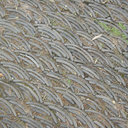Armenian
Albanian
Arabic
Armenian
Azerbaijani
Belarusian
Bengali
Bosnian
Catalan
Czech
Danish
Deutsch
Dutch
English
Estonian
Finnish
Français
Greek
Haitian Creole
Hebrew
Hindi
Hungarian
Icelandic
Indonesian
Irish
Italian
Japanese
Korean
Latvian
Lithuanian
Macedonian
Mongolian
Norwegian
Persian
Polish
Portuguese
Romanian
Russian
Serbian
Slovak
Slovenian
Spanish
Swahili
Swedish
Turkish
Ukrainian
Vietnamese
Български
中文(简体)
中文(繁體)
Journal of Ethnopharmacology 2019-Oct
Միայն գրանցված օգտվողները կարող են հոդվածներ թարգմանել
Մուտք / Գրանցվել
Հղումը պահվում է clipboard- ում
Բժշկական դեղաբույսերի ամենալավ տվյալների շտեմարանը, որին աջակցում է գիտությունը
- Աշխատում է 55 լեզուներով
- Բուսական բուժում, որին աջակցում է գիտությունը
- Խոտաբույսերի ճանաչում պատկերով
- Ինտերակտիվ GPS քարտեզ - նշեք խոտաբույսերը գտնվելու վայրի վրա (շուտով)
- Կարդացեք ձեր որոնմանը վերաբերող գիտական հրապարակումները
- Որոնեք բուժիչ դեղաբույսերը ՝ դրանց ազդեցությամբ
- Կազմակերպեք ձեր հետաքրքրությունները և մշտապես տեղեկացեք նորությունների հետազոտությունների, կլինիկական փորձարկումների և արտոնագրերի մասին
Մուտքագրեք ախտանիշ կամ հիվանդություն և կարդացեք խոտաբույսերի մասին, որոնք կարող են օգնել, տպեք խոտ և տեսեք այն հիվանդություններն ու ախտանիշները, որոնց դեմ օգտագործվում են:
* Ամբողջ տեղեկատվությունը հիմնված է հրապարակված գիտական հետազոտության վրա





